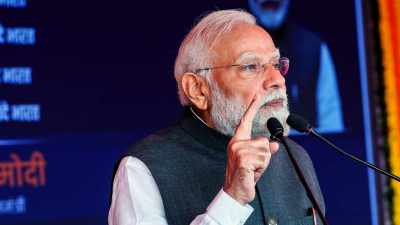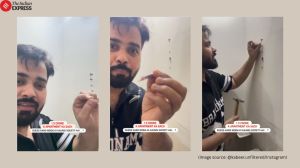Ban on FDI in tobacco against MNCs
Indias decision to ban foreign investment in cigarette manufacturing is discriminatory against the overseas firms,according to tobacco majors.
Global tobacco majors like Philips Morris International and Japan Tobacco International today said Indias decision to ban foreign investment in cigarette manufacturing is discriminatory against the overseas firms.
We believe tobacco should be regulated not through a ban on FDI,but through other means which apply equally to Indian and non-Indian companies, Japan Tobacco International (JTI) India spokesperson said.
The Cabinet Committee on Economic Affairs took a decision yesterday to ban FDI in the manufacturing of cigarettes.
The approval is expected to enhance public accountability by way of the governments commitment towards proliferation of anti-smoking regime in the country, Home Minister P Chidambaram had said after the CCEA meeting.
However,the global cigarette makers and owners of well-known brands like Camel and Marlboro said the decision did not treat Indian and foreign companies on equal footing.
Besides,tobacco-related harm can be reduced through other regulatory measures and not through outright ban on FDI.
We are very disappointed … This is a protectionist measure that unfairly discriminates against foreign manufacturers and bears no relation to the achievement of public health goals, Philip Morris International (PRI) spokesperson said.
She said the governmental policies to reduce the harm caused by tobacco use would be better pursued through implementation and enforcement of comprehensive regulation and appropriate tax policy that applies equally to all types of tobacco products.
However,the UK-based British American Tobacco (BAT),which owns 32 per cent in ITC – the makers of Classic,Wills,Gold Flake and India Kings etc – said the decision would not impact its business plans.
It will have no impact on our business. We already have 32 per cent stake in ITC and we have no plans to increase it.
Our business in India is done only through ITC and therefore the government ruling will have no impact on our business in India, BAT spokesperson said.
Japan Tobacco International (JTI) operates in India through a joint venture with the local partner and it has around 50 per cent stake in it. Earlier JTI has approached government for getting approval to increase stake in the Indian venture to 74 per cent.
Both JTI and PMI operate in India — the worlds eighth largest market estimated at selling 102 billion sticks annually — through their joint ventures.





- 01
- 02
- 03
- 04
- 05


























